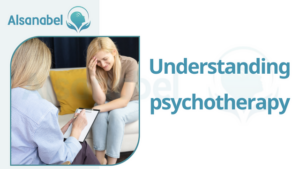The Different Types of Psychological Treatment 2024
- Category ADHD
Overview of Psychological Treatment
Psychological treatment involves various therapeutic approaches to address mental health concerns. Therapists use different techniques to help individuals overcome their challenges, including talk therapy, cognitive-behavioral therapy, and trauma-focused therapy. The purpose of psychological treatment is to provide individuals with the tools they need to improve their mental health and wellbeing.
Benefits of Seeking Psychological Treatment
Seeking psychological treatment can have several benefits for individuals struggling with mental health concerns. Here are some advantages of seeking psychological treatment:
- Improved mental health: Psychological treatment can improve an individual’s overall mental health, reducing symptoms of depression, anxiety, and other mental health conditions.
- Better relationships: Individuals who receive psychological treatment can develop better relationships with loved ones and improve communication skills.
- Increased self-awareness: Through psychological treatment, individuals can develop a better understanding of their emotions, thoughts, and behavior.
- Enhanced coping skills: Psychological treatment can help individuals develop healthy coping mechanisms and strategies to manage stress and difficult emotions.
Understanding psychotherapy
The goal of psychotherapy is to provide individuals with a safe space to explore and gain insight into their thoughts and feelings. During therapy sessions, individuals may discuss past experiences, relationships, and challenges they are currently facing. The therapist then works with the individual to develop coping skills and strategies to manage difficulties and improve their quality of life.

Psychotherapy can be conducted on an individual or group basis and can be short-term or long-term depending on the individual’s needs. The length and frequency of sessions can also vary depending on the individual’s goals and the therapeutic approach being used.
Different approaches to psychotherapy
There are several different approaches to psychotherapy, each with its unique techniques and goals. Some common types of psychotherapy include:
- Cognitive-behavioral therapy (CBT): This approach focuses on changing negative thought patterns and behaviors that contribute to mental health issues.
- Psychodynamic therapy: This approach explores how past experiences and unconscious thoughts and feelings influence present behavior and emotions.
- Humanistic therapy: This approach emphasizes the individual’s strengths and abilities and focuses on personal growth and self-discovery.
- Trauma-focused therapy: This approach is designed to help individuals who have experienced trauma by addressing the impact of the trauma and helping individuals develop coping strategies to manage its effects.
In conclusion, psychotherapy is a valuable tool for individuals struggling with mental health concerns. With various approaches to choose from, individuals can find a therapist and therapeutic approach that best suits their needs. Seeking professional help and starting the journey towards better mental health and wellbeing is an important step towards a happier and healthier life.
Cognitive Behavioral Therapy (CBT)
CBT is a widely used form of psychotherapy that focuses on identifying and changing negative thought patterns and behaviors that contribute to mental health issues. This approach is effective in treating various conditions, including anxiety, depression, and trauma-related disorders.
What is CBT?
The main goal of CBT is to help individuals understand how their thoughts and behaviors affect their emotions and overall wellbeing. During therapy sessions, individuals work with a mental health professional to identify negative thought patterns and develop strategies to replace them with positive and constructive thoughts. This approach also addresses negative behaviors and helps individuals develop coping skills and problem-solving strategies to manage difficulties effectively.
CBT techniques and strategies
CBT uses a variety of techniques and strategies tailored to meet the individual’s unique needs and goals. Some common techniques used in CBT include:
- Cognitive restructuring: This technique involves identifying negative thought patterns and replacing them with positive and realistic thoughts.
- Exposure therapy: This technique is used to help individuals confront their fears and anxieties gradually. This approach helps individuals learn how to manage their reactions and overcome their fears.
- Behavioral activation: This technique focuses on helping individuals engage in positive and rewarding activities to improve their mood and reduce negative thoughts.
Overall, CBT is a valuable tool in the treatment of mental health issues. This approach empowers individuals to take an active role in their treatment and develop skills and strategies to manage their mental health effectively.
Dialectical Behavior Therapy (DBT)
Dialectical Behavior Therapy (DBT) is a form of psychotherapy that aims to help individuals develop skills to manage intense emotions and improve their ability to maintain healthy relationships. This approach was originally created to treat individuals with borderline personality disorder, but it has been found effective in treating other conditions such as depression, anxiety, and eating disorders.
DBT combines cognitive-behavioral techniques with mindfulness practices to help individuals learn to regulate their emotions, tolerate distress, and improve interpersonal skills. In therapy sessions, individuals learn to identify and regulate intense emotions by focusing on the present moment and building mindfulness skills. DBT philosophy emphasizes the acceptance of painful experiences and the importance of developing healthy coping mechanisms.
DBT techniques and strategies
DBT for emotional regulation involves several techniques, including emotional regulation, distress tolerance, and interpersonal effectiveness. Emotional regulation teaches individuals to identify and label their emotions, understand the function of emotions, and learn how to change emotional responses. Distress tolerance focuses on developing coping skills to manage intense emotional pain and manage crises effectively. Interpersonal effectiveness helps individuals develop effective communication skills and improve relationships.
DBT is a long-term approach that involves both individual and group therapy sessions. It may be particularly useful for individuals who have difficulty regulating their emotions and experiencing intense interpersonal conflicts. This approach may not be suitable for everyone, and the individual’s specific needs and goals should be considered when determining the appropriate treatment approach.
Acceptance and Commitment Therapy (ACT)
Acceptance and Commitment Therapy (ACT) is a psychological approach that helps individuals develop psychological flexibility and improve their wellbeing. This approach is based on the premise that struggling with negative thoughts and emotions can worsen mental health conditions. Instead, ACT teaches individuals how to accept their experiences and emotions and commit to behaviors that align with their values.

ACT techniques and strategies
ACT teaches mindfulness skills to help individuals become more aware of their thoughts and emotions. With this awareness, individuals gain a better understanding of how their internal experiences affect their thoughts and behavior. Mindfulness also helps individuals create cognitive distance between themselves and their thoughts. They learn to observe their thoughts and emotions without judgment and respond without struggling or fighting them.
In ACT, individuals identify their values and commit to behaviors that align with their values, even if it involves experiencing discomfort or uncertainty. This approach helps individuals create a more meaningful and fulfilling life. By accepting uncomfortable thoughts and emotions and taking action, individuals learn to develop psychological flexibility and improve their overall wellbeing.
Mindfulness is a key component of ACT. Mindfulness exercises, such as breathing techniques, help individuals develop skills to stay focused on the present moment. Mindfulness also teaches individuals how to observe their surroundings and their thoughts and emotions with acceptance and curiosity. In ACT, mindfulness exercises are used to help individuals clarify their values and create a more meaningful life.
Interpersonal Therapy (IPT)
Interpersonal Therapy (IPT) is a psychological approach that focuses on improving interpersonal relationships and resolving related problems. IPT assumes that interpersonal stressors, such as changes in relationships, can cause negative emotions that contribute to mental health conditions such as depression and anxiety.
Understanding IPT
IPT consists of 12-16 sessions, during which the individual works with a therapist to address interpersonal issues. The therapist helps the individual identify the relationship problems that cause emotional distress and teaches skills to manage these problems.
The therapist helps the individual improve communication and problem-solving skills to enhance relationships and reduce stress. IPT can be used individually or in a group setting, and research shows that it can be effective for improving interpersonal relationships and treating mental health conditions.
IPT for relationship problems
IPT can be effective for treating various relationship problems, including marital difficulties, conflicts with family members, and problems with friendships. The therapy addresses unresolved grief, role transitions, social isolation, and interpersonal deficits.
In IPT, the therapist helps the individual identify their emotions related to the interpersonal problem and how they express these emotions. The individual learns to communicate with others more effectively and improve social skills to build strong relationships and increase social support.
family-based therapy
Family-Based Therapy is a kind of psychotherapy that is focused on addressing issues that impact the function of the whole family system. It aims to help improve relationships and resolve underlying problems that can cause negative emotions among members of the family.
What is family-based therapy?
Family-Based Therapy normally involves several sessions of therapy, where each member of the family participates. The therapist’s approach depends on the specific concern the family is facing. Issues can range from problems with communication to more severe issues such as mental health disorders, substance abuse, or behavioral problems of a child or adolescent in the family.
Family-Based Therapy typically involves developing a shared perspective on the issue, improving communication, problem-solving and coping skills, and promoting empathy and support among family members. The therapist’s role is to facilitate a positive change in the interaction patterns of the family system.
How family therapy can help
Family-Based Therapy has proven useful for many families in a variety of situations. It is particularly useful for families that need to resolve conflicts and improve their relationships. It is also helpful for families with a member going through a significant life transition or dealing with a mental health issue that affects the whole family.
Through Family-Based Therapy, families can develop healthy communication patterns, strengthen family bonds, and identify a shared purpose. Family therapy can also lessen the effects of stress and trauma experienced by individual family members.
Medication-Assisted Treatment (MAT)
Medication-Assisted Treatment (MAT) is a type of treatment for substance use disorders that involves the use of medication, in combination with therapy, to help individuals manage their symptoms and achieve sobriety.

What is MAT?
MAT is an evidence-based approach that has been proven to be effective in treating substance use disorders such as opioid use disorder, alcohol use disorder, and nicotine addiction. Unlike traditional approaches to addiction treatment, MAT uses medication to help individuals manage withdrawal symptoms and cravings, while also promoting the recovery process by reducing the risk of relapse. However, it’s essential to note that medication alone is not enough to achieve long-term recovery. Counseling, behavioral therapies, and support are also necessary components of any successful MAT program.
How to incorporate medication into treatment
To incorporate medication into treatment, individuals seeking help must undergo a comprehensive assessment to determine the best type of medication for their specific needs. The medications used in MAT have been approved by the Food and Drug Administration (FDA) and have been shown to be safe and effective when used as directed. Medications such as buprenorphine, methadone, and naltrexone are commonly used in MAT programs to help individuals manage their symptoms and cravings.
MAT is typically delivered in an outpatient setting, allowing patients to continue working or maintaining their daily routines while receiving treatment. Treatment duration can vary and is determined by the individual’s needs, but typically, MAT programs aim to help individuals achieve long-term recovery and improve their overall quality of life.
Finding the right type of treatment for you
The right type of treatment for substance use disorders varies depending on the individual’s needs. A comprehensive assessment should be conducted to determine the most appropriate medication, therapy, and support options. Individuals should discuss their options with a healthcare provider to ensure the right treatment plan is chosen.
In summary, substance use disorders are treatable, and medication-assisted treatment (MAT) is an effective approach for managing symptoms and cravings. With the support of healthcare providers, counseling, and therapy, individuals can achieve long-term recovery and improve their overall quality of life.









